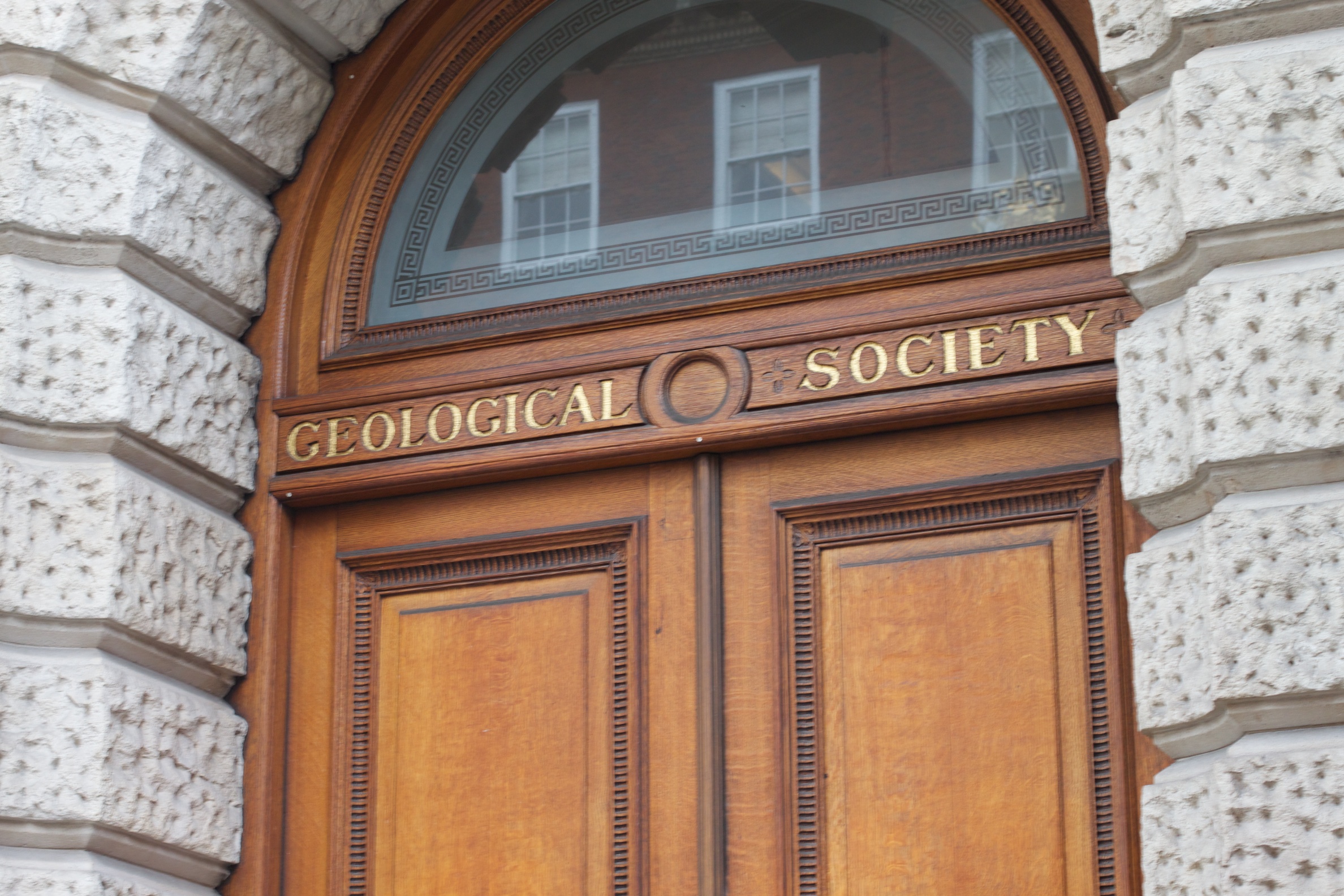|
Association Of Applied Geochemists
The Association of Applied Geochemists (AAG) is an international society that seeks to advance the study and application of geochemistry and represents scientists working in that field. History The society was founded in 1970 as the Association of Exploration Geochemists. Membership Members of the society are required to have worked in geochemistry for at least two years at the time of application; student members are admitted if they are enrolled in courses recognised by the Association. To become a voting member, or fellow, members must satisfy the society that they have adequate training and experience in the field. Membership in the society has been used to measure total numbers of working geochemists. Activities Symposia The Association organizes a series of biennial International Applied Geochemistry Symposia (titled the International Geochemical Exploration Symposium until 2005), held recently in Oviedo, Spain, and Perth, Australia. Publications Shortly after its inaugur ... [...More Info...] [...Related Items...] OR: [Wikipedia] [Google] [Baidu] |
International Nongovernmental Organization
An international non-governmental organization (INGO) is an organization which is independent of government involvement and extends the concept of a non-governmental organization (NGO) to an international scope. NGOs are independent of governments and can be seen as two types: ''advocacy NGOs'', which aim to influence governments with a specific goal, and ''operational NGOs'', which provide services. Examples of NGO mandates are environmental preservation, human rights promotions or the advancement of women. NGOs are typically not-for-profit, but receive funding from companies or membership fees. Many large INGOs have components of operational projects and advocacy initiatives working together within individual countries. The technical term "international organizations" describes intergovernmental organizations (IGOs) and include groups such as the United Nations or the International Labour Organization, which are formed by treaties among sovereign states. In contrast, INGOs are ... [...More Info...] [...Related Items...] OR: [Wikipedia] [Google] [Baidu] |
Geochemistry
Geochemistry is the science that uses the tools and principles of chemistry to explain the mechanisms behind major geological systems such as the Earth's crust and its oceans. The realm of geochemistry extends beyond the Earth, encompassing the entire Solar System, and has made important contributions to the understanding of a number of processes including mantle convection, the formation of planets and the origins of granite and basalt. It is an integrated field of chemistry and geology. History The term ''geochemistry'' was first used by the Swiss-German chemist Christian Friedrich Schönbein in 1838: "a comparative geochemistry ought to be launched, before geognosy can become geology, and before the mystery of the genesis of our planets and their inorganic matter may be revealed." However, for the rest of the century the more common term was "chemical geology", and there was little contact between geologists and chemists. Geochemistry emerged as a separate discipline after ... [...More Info...] [...Related Items...] OR: [Wikipedia] [Google] [Baidu] |
Oviedo
Oviedo (; ast, Uviéu ) is the capital city of the Principality of Asturias in northern Spain and the administrative and commercial centre of the region. It is also the name of the municipality that contains the city. Oviedo is located approximately southwest of Gijón and south of Avilés, both of which lie on the shoreline of the Bay of Biscay. Oviedo's proximity to the ocean of less than in combination with its elevated position with areas of the city more than 300 metres above sea level causes the city to have a maritime climate, in spite of its not being located on the shoreline itself. History The Kingdom of Asturias began in 720, with the Visigothic aristocrat Pelagius's (685–737) revolt against the Muslims who at the time were occupying most of the Iberian Peninsula. The Moorish invasion that began in 711 had taken control of most of the peninsula, until the revolt in the northern mountains by Pelagius. The resulting Kingdom of Asturias, located in an eco ... [...More Info...] [...Related Items...] OR: [Wikipedia] [Google] [Baidu] |
Spain
, image_flag = Bandera de España.svg , image_coat = Escudo de España (mazonado).svg , national_motto = ''Plus ultra'' (Latin)(English: "Further Beyond") , national_anthem = (English: "Royal March") , image_map = , map_caption = , image_map2 = , capital = Madrid , coordinates = , largest_city = Madrid , languages_type = Official language , languages = Spanish language, Spanish , ethnic_groups = , ethnic_groups_year = , ethnic_groups_ref = , religion = , religion_ref = , religion_year = 2020 , demonym = , government_type = Unitary state, Unitary Parliamentary system, parliamentary constitutional monarchy , leader_title1 = Monarchy of Spain, Monarch , leader_name1 = Felipe VI , leader_title2 = Prime Minister of Spain ... [...More Info...] [...Related Items...] OR: [Wikipedia] [Google] [Baidu] |
University Of Oviedo
The University of Oviedo ( es, Universidad de Oviedo, Asturian: ''Universidá d'Uviéu'') is a public university in Asturias (Spain). It is the only university in the region. It has three campus and research centres, located in Oviedo, Gijón and Mieres. History The University of Oviedo was established under the terms and conditions of the will of Archbishop Fernando de Valdés Salas (1483–1568), who was the General Inquisitor under Philip II of Spain, and funded by his estate. In 1574 Pope Gregory XIII granted the papal bull to create the university and in 1604 Philip III issued its charter. It first opened for the teaching of classes on September 21, 1608. The ancient university had three Faculty (division), faculties: the Faculty of Arts, which every student had to graduate from in order to continue his training in one of the other; and the Faculties of Theology and Law, sometimes known as the higher faculties. After Spanish War of Independence, the French invasion o ... [...More Info...] [...Related Items...] OR: [Wikipedia] [Google] [Baidu] |
Perth, Western Australia
Perth is the capital and largest city of the Australian state of Western Australia. It is the fourth most populous city in Australia and Oceania, with a population of 2.1 million (80% of the state) living in Greater Perth in 2020. Perth is part of the South West Land Division of Western Australia, with most of the metropolitan area on the Swan Coastal Plain between the Indian Ocean and the Darling Scarp. The city has expanded outward from the original British settlements on the Swan River, upon which the city's central business district and port of Fremantle are situated. Perth is located on the traditional lands of the Whadjuk Noongar people, where Aboriginal Australians have lived for at least 45,000 years. Captain James Stirling founded Perth in 1829 as the administrative centre of the Swan River Colony. It was named after the city of Perth in Scotland, due to the influence of Stirling's patron Sir George Murray, who had connections with the area. It gained city stat ... [...More Info...] [...Related Items...] OR: [Wikipedia] [Google] [Baidu] |
Australia
Australia, officially the Commonwealth of Australia, is a Sovereign state, sovereign country comprising the mainland of the Australia (continent), Australian continent, the island of Tasmania, and numerous List of islands of Australia, smaller islands. With an area of , Australia is the largest country by area in Oceania and the world's List of countries and dependencies by area, sixth-largest country. Australia is the oldest, flattest, and driest inhabited continent, with the least fertile soils. It is a Megadiverse countries, megadiverse country, and its size gives it a wide variety of landscapes and climates, with Deserts of Australia, deserts in the centre, tropical Forests of Australia, rainforests in the north-east, and List of mountains in Australia, mountain ranges in the south-east. The ancestors of Aboriginal Australians began arriving from south east Asia approximately Early human migrations#Nearby Oceania, 65,000 years ago, during the Last Glacial Period, last i ... [...More Info...] [...Related Items...] OR: [Wikipedia] [Google] [Baidu] |
Geological Society Of London
The Geological Society of London, known commonly as the Geological Society, is a learned society based in the United Kingdom. It is the oldest national geological society in the world and the largest in Europe with more than 12,000 Fellows. Fellows are entitled to the postnominal FGS (Fellow of the Geological Society), over 2,000 of whom are Chartered Geologists (CGeol). The Society is a Registered Charity, No. 210161. It is also a member of the Science Council, and is licensed to award Chartered Scientist to qualifying members. The mission of the society is: "Making geologists acquainted with each other, stimulating their zeal, inducing them to adopt one nomenclature, facilitating the communication of new facts and ascertaining what is known in their science and what remains to be discovered". History The Society was founded on 13 November 1807 at the Freemasons' Tavern, Great Queen Street, in the Covent Garden district of London. It was partly the outcome of a previous cl ... [...More Info...] [...Related Items...] OR: [Wikipedia] [Google] [Baidu] |
Wiley-Blackwell
Wiley-Blackwell is an international scientific, technical, medical, and scholarly publishing business of John Wiley & Sons. It was formed by the merger of John Wiley & Sons Global Scientific, Technical, and Medical business with Blackwell Publishing in 2007.About Wiley-Blackwell John Wiley & Sons, Inc. Wiley-Blackwell is now an imprint that publishes a diverse range of academic and professional fields, including , , , |
The Geological Society
The Geological Society of London, known commonly as the Geological Society, is a learned society based in the United Kingdom. It is the oldest national geological society in the world and the largest in Europe with more than 12,000 Fellows. Fellows are entitled to the postnominal FGS (Fellow of the Geological Society), over 2,000 of whom are Chartered Geologists (CGeol). The Society is a Registered Charity, No. 210161. It is also a member of the Science Council, and is licensed to award Chartered Scientist to qualifying members. The mission of the society is: "Making geologists acquainted with each other, stimulating their zeal, inducing them to adopt one nomenclature, facilitating the communication of new facts and ascertaining what is known in their science and what remains to be discovered". History The Society was founded on 13 November 1807 at the Freemasons' Tavern, Great Queen Street, in the Covent Garden district of London. It was partly the outcome of a previous club ... [...More Info...] [...Related Items...] OR: [Wikipedia] [Google] [Baidu] |
AAG Gold Medal
The AAG Gold Medal is the highest award given by the international Association of Applied Geochemists (AAG). It recognizes recipients' lifetime achievements, or significant contributions to geochemistry and its applications. The medal is minted with the name of the recipient and the year of the award from two troy ounces of silver bullion. Recipients The following have received the gold medal: See also * List of geology awards This list of geology awards is an index to articles on notable awards for geology, an earth science concerned with the solid Earth, the rocks of which it is composed, and the processes by which they change over time. Geology can also include the ... References Awards established in 1995 Geochemistry Geology awards {{orders-medals-stub ... [...More Info...] [...Related Items...] OR: [Wikipedia] [Google] [Baidu] |
Geochemistry Organizations
Geochemistry is the science that uses the tools and principles of chemistry to explain the mechanisms behind major geological systems such as the Earth's crust and its oceans. The realm of geochemistry extends beyond the Earth, encompassing the entire Solar System, and has made important contributions to the understanding of a number of processes including mantle convection, the formation of planets and the origins of granite and basalt. It is an integrated field of chemistry and geology. History The term ''geochemistry'' was first used by the Swiss-German chemist Christian Friedrich Schönbein in 1838: "a comparative geochemistry ought to be launched, before geognosy can become geology, and before the mystery of the genesis of our planets and their inorganic matter may be revealed." However, for the rest of the century the more common term was "chemical geology", and there was little contact between geologists and chemists. Geochemistry emerged as a separate discipline after ... [...More Info...] [...Related Items...] OR: [Wikipedia] [Google] [Baidu] |


